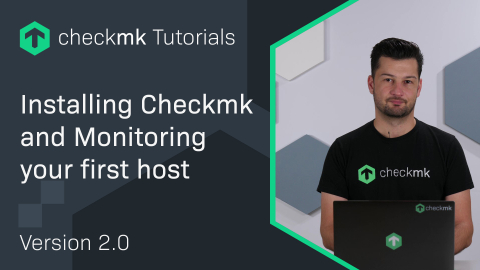
To load this YouTube video you are required to accept advertising cookies.
And there you enable show more where you see the permissions. And now I'm going to show how to set up the contact groups. So, we go back to Setup, Contact groups. We already see our default group everything.
And there you enable show more where you see the permissions. And now I'm going to show how to set up the contact groups. So, we go back to Setup, Contact groups. We already see our default group everything.
Want to know more about Checkmk? Join us for our Introduction to Checkmk Webinar

In this video, Baris explains how to take get started with Checkmk and start monitoring your first host within a few minutes.
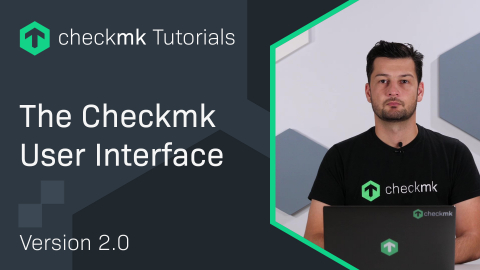
In this video, Baris take you through the new user interface in Checkmk 2.0. He explains the various components of the User interface such as the new navigation menus, the Sidebar, main dashboard, tactical overview, how to switch between the Checkmk interface themes and much more

In this episode, Baris explains how to monitor network devices with Checkmk. SNMP is a protocol that many switches, routers, printers, UPSs, hardware sensors and other devices have implemented with the purpose of being able to monitor them easily.
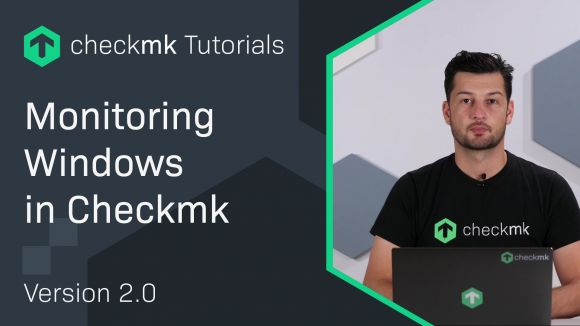
In this video of our Getting started with Checkmk series, Baris explains how to install a Checkmk agent on a Windows host system and add that into your monitoring environment.

In the 5th episode of the Getting started with Checkmk series, Baris explains using various metrics that you can monitor in Checkmk such as CPU utilization, CPU load etc. You can also see graph visualizations for these metrics or create and customize your own as per your requirements.

In this video, Baris explains how to update your Checkmk instance. It is very easy and can be done within minutes. You can run multiple Checkmk instances with different versions on the same system. This gives you the flexibility to test the new version before using it in production.
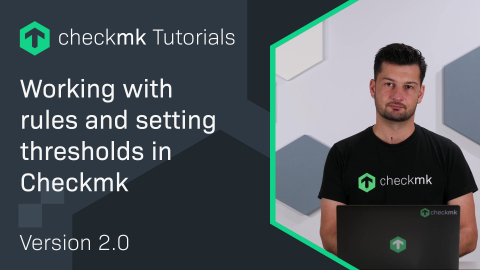
In the following three-part videos series, Baris explains rule-based monitoring with Checkmk. In the first part, he shows you how you can work with rules and set threshold values. Rule-based configuration is one of the key features for Checkmk which helps you to scale your monitoring easily within minutes.
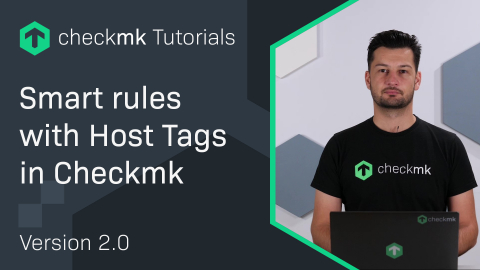
In the second part of this video, Baris explains using Smart rules with host tags in Checkmk. In the first part, he shows you how you can work with rules and set threshold values. These are features that you can use to build your rules even more intelligently and to better organize your monitoring.
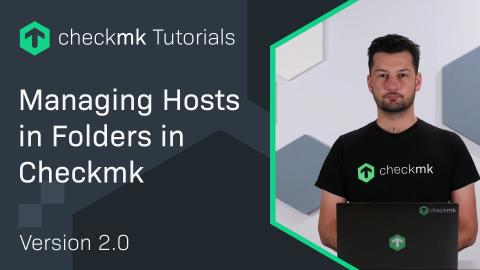
In this final part of our episode on Rule-based monitoring in Checkmk, Baris demonstrates how to manage hosts in folders in Checkmk. This helps you to apply your monitoring configurations at scale and organize your hosts according to your needs.
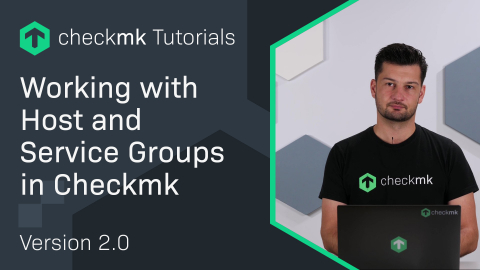
In this Baris demonstrates how to create host and service groups in Checkmk, so you can perform actions on an entire group instead of configuring each of them individually.
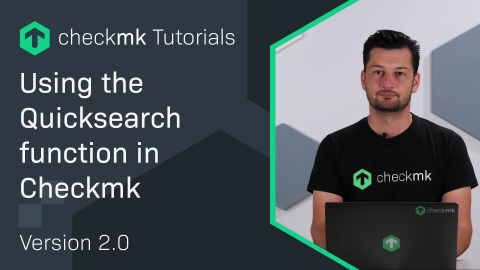
In this episode of the Checkmk tutorials, Baris shows how you can use the Quicksearch function in Checkmk. You can use it to easily find and manage certain hosts or services. He also explains some examples of filters to you. In Checkmk 2.0 you can use the same syntax in the Seach function found in the monitor menu to get identical results.
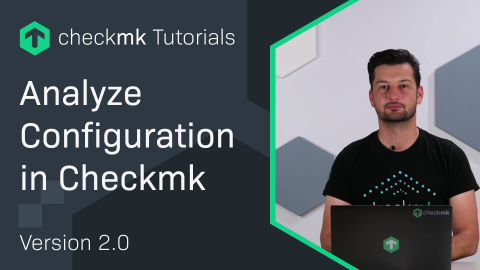
With the Analyze Configuration feature, you can check if there are any configuration errors in your installation. Checkmk controls a number of possible security risks or potential performance restrictions and indicates if there are any problems.
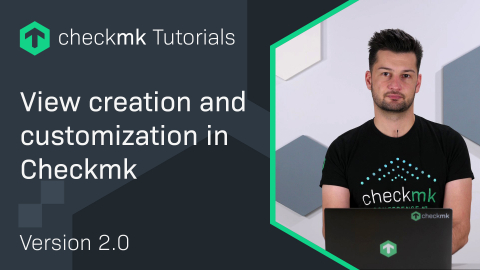
In this video, Baris demonstrates how to customize headers, columns, and more in Views in Checkmk for yourself or other users. He also explains how to create custom views and add desired information to these views.
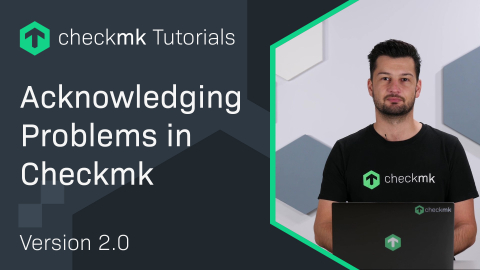
In this video, Baris explains how you can acknowledge problems in Checkmk. This function helps you to qualify the states of hosts and services. This allows you to keep track of messages in the main dashboard and, for example, you can add comments to problems.
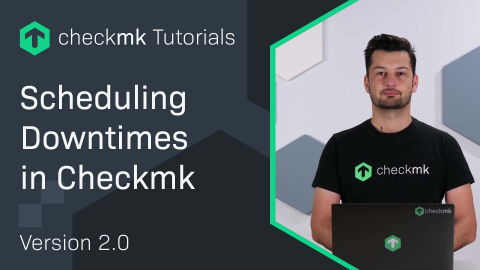
In the episode of our Getting started with Checkmk series, Baris explains how you can manage the maintenance times of your systems in Checkmk. Such scheduled downtimes prevent your monitoring from sending false alarms when a host or service goes to WARN or CRIT during maintenance work. You can also inform the users concerned about the maintenance via Checkmk.
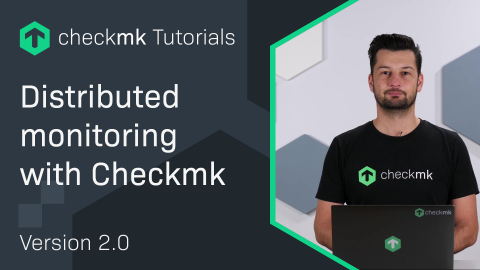
In this video, Baris explains how you can connect several Checkmk instances to a monitoring system and then manage it.
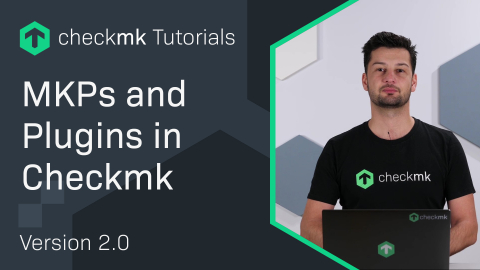
In the 15th episode of our Getting started with Checkmk tutorial series, Baris explains what are Checkmk Extension Packages (MKPs) and how easy it is to integrate them into your Checkmk monitoring environment. MKPs are the preferred format when you make your own extensions as it makes it easy to share with other users or deploy in distributed environments.
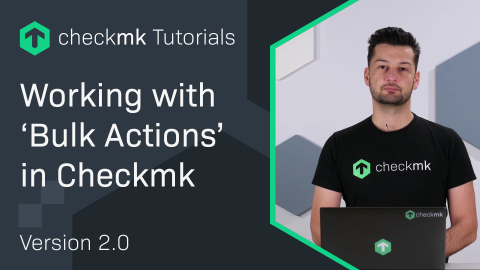
In this episode of our Checkmk tutorials series, Baris explains how you can save a lot of time with bulk actions. With this feature you can perform various tasks such as deleting, renaming, service discovery etc. on a large number of hosts simultaneously.
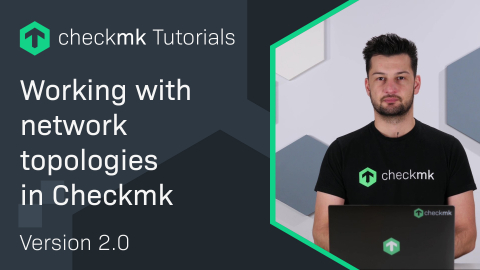
In this video of our gettign startted with Checkmk series, Baris explains how to map network topologies in Checkmk. This feature is quite helpful to manage your network and prevent any unnecessary notifications from the devices in your network.
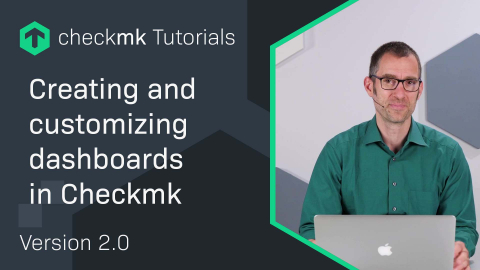
In this video of our Getting started with Checkmk series, Mathias explains how you can create and customize dashboards in Checkmk 2.0, so you can get insights into your monitoring according to your requirements. Find out more in this video.
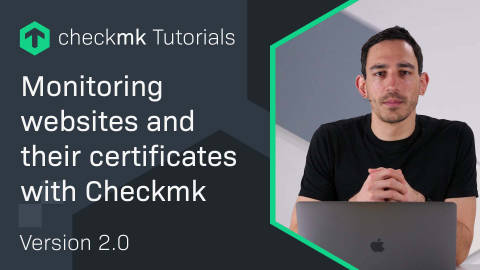
In this episode, Bastian demonstrates how to monitor a website and its certificate with Checkmk. You can also monitor specific web pages with Checkmk by using the several options that will suit your use case. Learn more in this video.
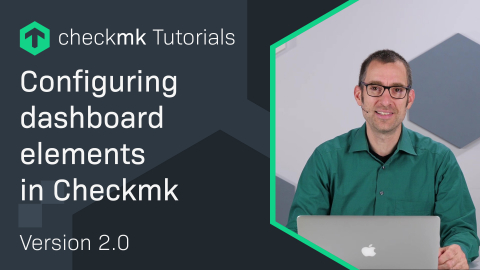
Learn how to add data visualization elements of the various metrics into your Checkmk Dashboard. In this video, Mathias explains how you can configure these elements and create a dashboard as per your requirements.
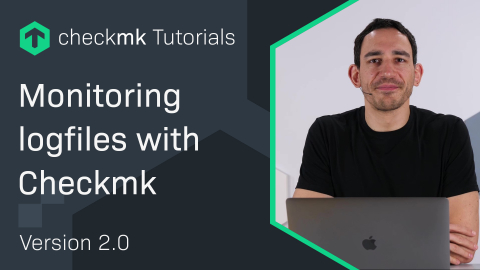
Monitor your logfiles with Checkmk using its Logwatch plugin. It is very useful when you want to monitor your logfiles regardless of whether you are using a UNIX/Linux or a windows based system. Learn more in this video.
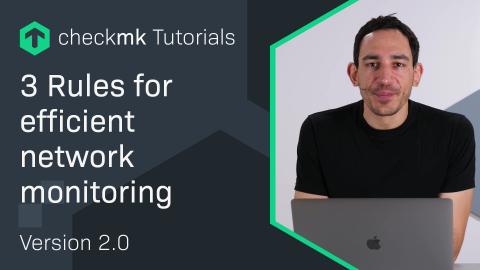
In this video, Bastian demonstrates 3 rules that will help you to efficiently monitor your network interfaces. With Checkmk 2.0, with just three rules, you can set up an efficient network monitoring that will not only monitor all of your network interfaces but also simultaneously provide a detailed overview of all of your ports.

Checkmk 2.1 come with many UX improvements such as pre-built dashboards for Linux and Windows, faster core performance and much more. Security features such as two-factor authentication etc. were also added in this new version. Watch this video to learn how to use these new features and enhancements in Checkmk.
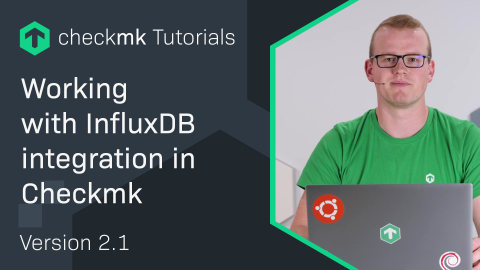
Learn how to send data to InfluxDB from Checkmk. As InfluxDB introduced a new protocol to send data to it, a new connector was developed with Checkmk to talk natively with it. Learn more about it in this video.
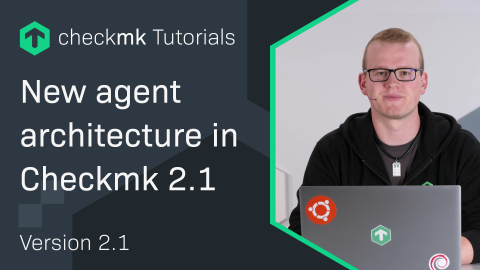
With Checkmk 2.1, the agent architecture was modified to enable performance improvements and add new features such as TLS encryption, data compression, and the reversal of direction of communication from the agent. This will enable push mode and pull mode.
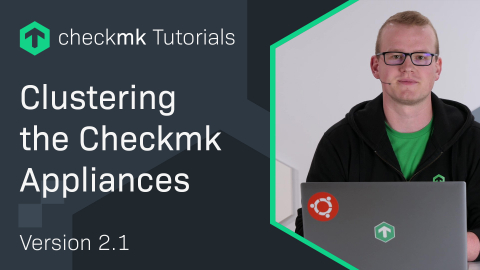
In this video, Robin demonstrates how you can cluster your Checkmk appliance to make it resilient against hardware failures. If you are using the Checkmk hardware appliance, it may be helpful to cluster your appliance to maintain high availability.
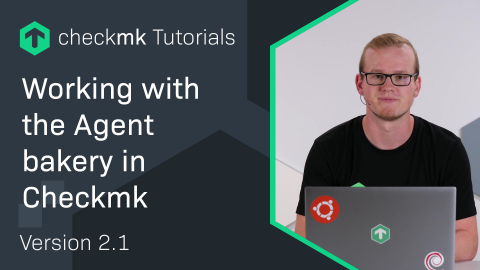
In this video, Robin demonstrates how to roll out agent packages with the required configuration for different monitored systems using the agent bakery in Checkmk. The "Automatic agent update" is quite a helpful feature as it pulls the latest configurations for an agent automatically and you don't need to manually update all of your agents deployed on different systems.
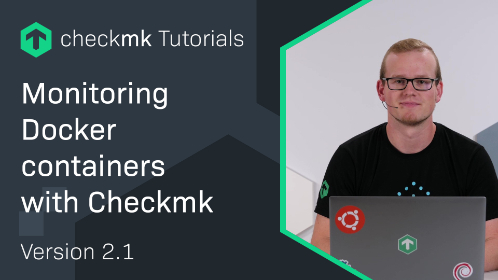
Learn how to monitor Docker containers with Checkmk.In this video, Robin demonstrates the process of setting up a rule to configure the docker plugin and bake an agent with the desired settings for the Docker host.
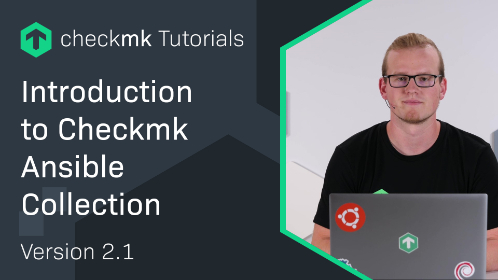
Last year the Checkmk Ansible collection was created to interact with the Checkmk REST API. In this video, Robin demonstrates how you can use this Ansible collection to automate your monitoring with Checkmk.
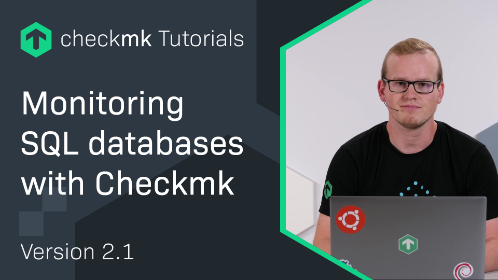
In this video, Robin demonstrates how you can configure your Checkmk site to monitor your SQL databases. As there are many flavours of SQL databases, the process is mostly the same.
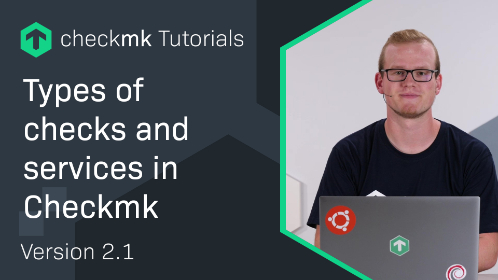
Learn about the different types of "checks" and services in Checkmk. In this video, Robin demonstrates how you can expand the information collected by your Checkmk agent using these different "Checks".
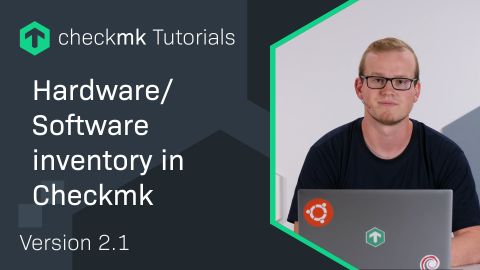
In this video, Robin demonstrates the hardware/software inventory feature in Checkmk. With this feature one can get an overview of various pieces of hardware present in their servers, switches etc. and also the software packages installed on their operating system. Watch this video to learn more.
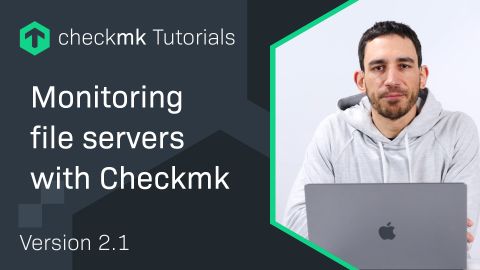
Monitoring file servers is essential for ensuring best experience for people working remotely. In this video, Bastian demonstrates various configuration options in the file system check one can use to monitor their file server efficiently.